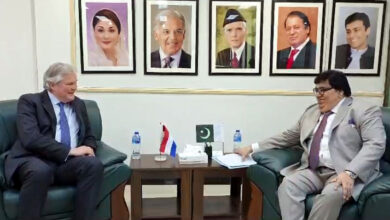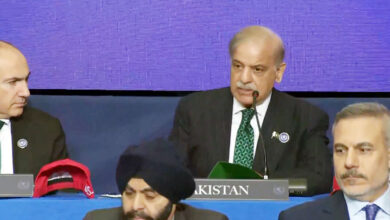سلايدر
أقرأ التالي
أخبار
20 فبراير، 2026
باكستان تستبعد أي حل عسكري للصراع في السودان
20 فبراير، 2026
شهباز: باكستان مستعدة للعمل مع مجلس السلام لإحلال السلام في غزة
20 فبراير، 2026
باكستان تستبعد أي حل عسكري للصراع في السودان
20 فبراير، 2026
باكستان والفلبين تتفقان على تعزيز التعاون في قطاعات متعددة.
20 فبراير، 2026
خواجة آصف: باكستان تتعرض لحرب بالوكالة تشنها الهند بالتواطؤ مع أفغانستان
20 فبراير، 2026
شهباز يشيد بتوسيع الشراكة الاقتصادية بين باكستان والولايات المتحدة
مقالات ذات صلة
شاهد أيضاً
إغلاق
- هندوسي يضرب مسلم هندي مسن لقراءته القرآن في القطار19 فبراير، 2026





